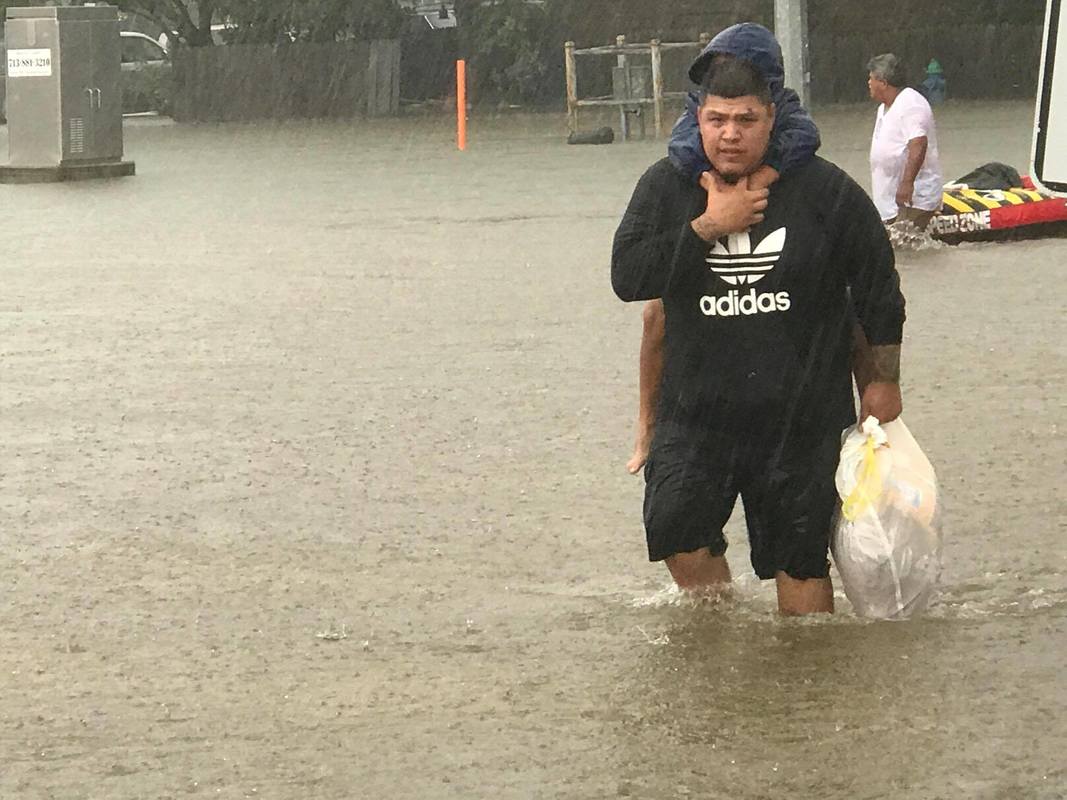Blog: Carefully Consider Price Gouging Allegations after Natural Disasters Like Hurricane Harvey1/13/2018 Hurricane Harvey brought devastation of catastrophic proportion. Reports note more than 80 deaths and around $150 billion in economic destruction. As someone raised in South Houston and with family and friends directly affected, it’s heart wrenching to see such damage.
Potentially adding to people’s pain was the possibility of scam contractors and price gouging. Scam contractors, also known as “storm chasers,” shouldn’t be allowed to prey on vulnerable people with fake promises of home repair or cheap cars. What about the concept of price gouging? Is there a price that takes advantage of people who need resources for their livelihood in the wake of natural disasters? Answers to these questions are often not clear cut, as determining that a price is gouging the consumer could harm those that need the good. Defined statutorily in Texas as “selling or leasing fuel, food, medicine or another necessity at an exorbitant or excessive price,” price gouging laws may help control consumers’ costs, but they can also have the adverse effect of deterring an increase in supply. Low price mandates may make items more affordable, but are useless if items aren’t available. Elevated prices, on the other hand, attract more supply, preventing long-term shortages and ultimately driving the price back down. Additionally, price controls can lead to hoarding, resulting in even fewer people getting supplies, potentially setting up costly price gouging in the black market. Allowing prices to rise discourages hoarding of supplies and encourages more rationed use of goods. To put it simply, higher prices send signals to suppliers of where and how much to supply and to consumers of how much to purchase. Without these signals, the devastation from natural disasters will likely be much worse. These principles could clearly be seen in the days following Hurricane Harvey. The storm shutdown roughly 25 percent of the nation’s refining capacity and transportation routes were blocked for days from flood waters. Fear of running out of gas naturally increased demand. Spooked consumers dashed to their nearest gas station to fill their tanks and other containers. Gas prices jumped in Houston from an average of $2.10 per gallon to $2.50 within days after the storm, according to gasbuddy.com. But there were reports of some stations charging as much as $20 per gallon, and many stations there and statewide had no gas. The average price remained near $2.50 per gallon for a while, as it tends to track gas futures prices that soared after the storm, and most stations soon had gas available. Gas markets work with higher prices sending signals to suppliers of where and how much to supply gas and to consumers of how much gas to purchase. Without these signals, the devastation from natural disasters will likely be much worse. What if stations can sufficiently raise gas prices? Consumers use that information to ration purchases of gas to just what’s necessary, instead of hoarding it in multiple gallon containers statewide. Other suppliers use this information to dedicate more gas to that area now that they can cover increased costs of transportation, labor, and risk, which has been the case as refineries come back online. Frivolous allegations of price gouging laws at the time, with 127 retailers eventually receiving notices of alleged violations after the storm, could distort market prices and deter charity thereby hurting those most the law is trying to help. Let us be cautious about claiming negotiations of individuals in the marketplace are wrong so that Texans affected by this tragic event and statewide will have sufficient resources to recover and prosper now and in the future.
0 Comments
Leave a Reply. |
Vance Ginn, Ph.D.
|


 RSS Feed
RSS Feed